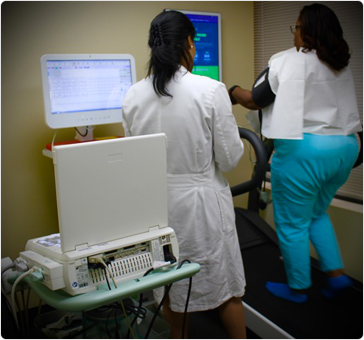Cardiac Testing

Board-certified interventional cardiologist Dr. Shawn Howell offers advanced diagnostic cardiac testing on site for your convenience. Our metro DC offices are equipped with the latest technology so you can go straight from the exam room to have your diagnostic procedure done without having to schedule another appointment.
If Dr. Howell suspects you’re suffering from cardiac arrhythmia, endocarditis, congestive heart failure, or any other heart-related condition, cardiac testing will help her diagnose your condition and determine your individualized treatment plan.
At Capital Cardiovascular Specialists, we offer the following on-site cardiac testing: